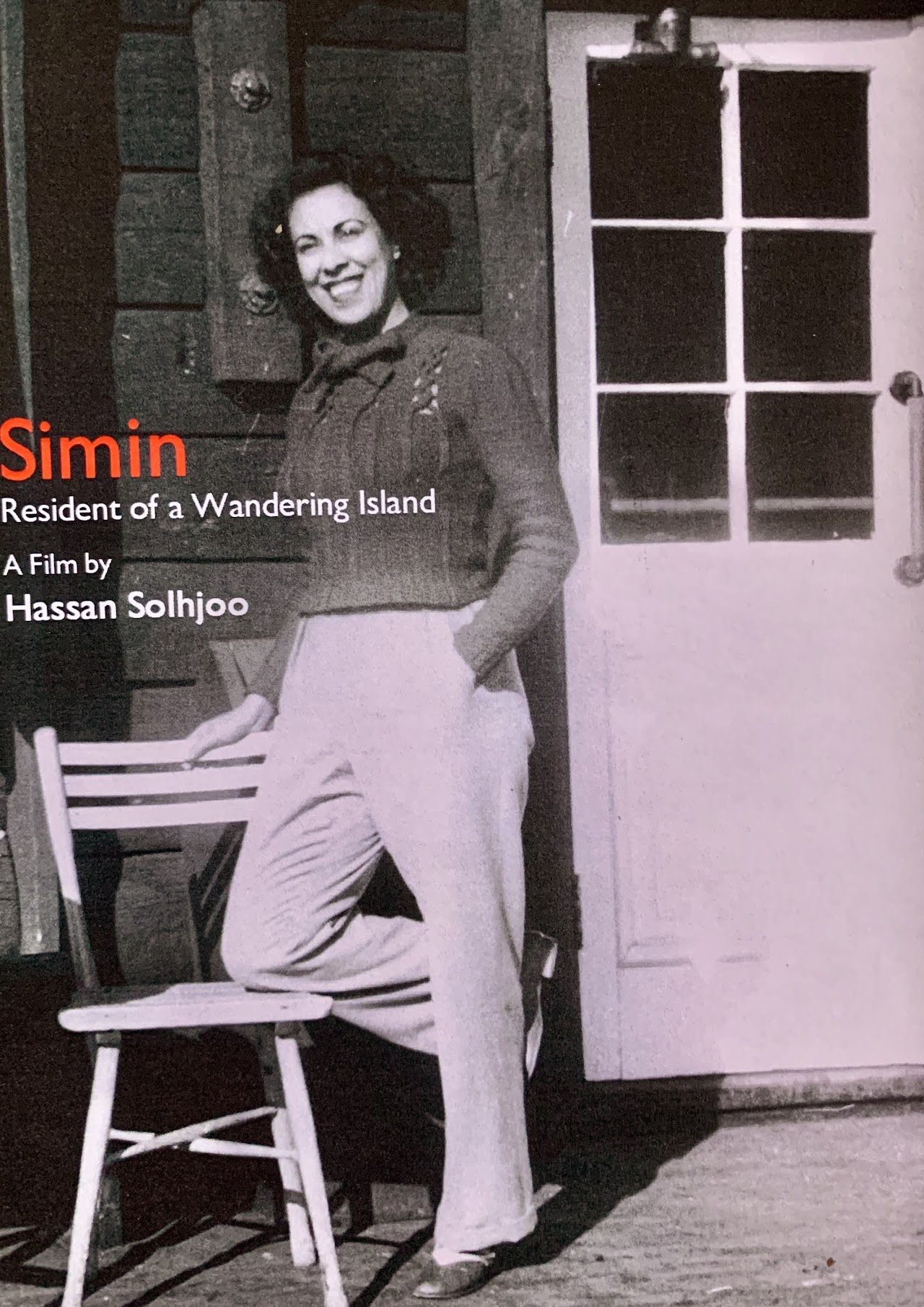

"We should start with a correspondence, maybe we will not correspond to one another. Ebrahim can send me a letter this Friday, and I'll answer him next Friday. So, see you Friday, Robinson!" And so, Jean-Luc Godard stages himself in his daily thought, wisely desperate, and sends images and words from Switzerland to the other side of the Channel. In his mansion in Sussex, Ebrahim Golestan tries to decode these UFO-messages and skilfully seeks to bring them back to the appearance of reason. And so on, until the day a veil falls over the two Gods on the run. Does the existence of poets still have any meaning in these times of distress?

This documentary that its filming has taken 10 years long, has shows a new picture of Ebrahim Golestan, Iranian filmmaker and literary figure of the 20th century.

Simin Daneshvar was an Iranian pioneering novelist who lived nearly for a century and under 3 different political regimes. She and her husband, (Jalal Al Ahamd) have been regarded as "Iranian Simone de Beauvoir, and Jean-Paul Sartre". But they had a very different fate. Simin's life is a mirror of what has happened to Iranian women throughout a century, from unveiling the hijab and playing important roles in society to imposing hijab and staying at home in the Islamic regime. This film looks at her life through the history of women's movement in Iran.
Ebrahim Golestan (Taghavi Shirazi) (also spelt Ibrahim Golestan, Persian: ابراهیم گلستان), (born October 19, 1922 in Shiraz, Iran) is an Iranian filmmaker and literary figure with a career spanning half a century. He has lived in Sussex, United Kingdom, since 1975. He was closely associated with the controversial and eminent Iranian poet Forough Farrokhzad until her death, whom he met at his studio in 1958. He is said to have inspired her to live more independently.
By browsing this website, you accept our cookies policy.